|
Ever heard of a horse being "LONG IN THE TOOTH"? This usually indicates it has gained some age. Unlike humans, horse teeth are constantly growing and being worn down throughout its lifetime. And, what is unique about this domesticated animal is, you can tell its age by its teeth. Is your horse LOSING WEIGHT? FIGHTING ITS BIT or pulling more to one side? Do you see FOOD DROPPING to the ground from its mouth instead of being chewed and swallowed? Your horse is telling you his mouth hurts due to a pinching or digging into its cheek, tongue or gums by its teeth having developed SHARP POINTS on its lingual (tongue) or buccal (cheek) side. We know what its like when we bite our tongue or cheek, so imagine their pain if they are constantly chewing down on mouth ulcers. Unfortunately, when a horse avoids chewing properly, i.e. moving its lower jaw in a circular motion to grind its food, some teeth or sides of the teeth will grow longer than others developing points or hooks causing the jaw to "LOCK UP". Yearly dental exams are highly recommended and can easily remedy most scenarios through the use of manual or mechanized equipment. MODERN TECHNOLOGY TO THE RESCUE. With an arsenal of mechanized precision dental instruments whose use requires a high level of skill and knowledge of equine dental anatomy and physiology (function), horse teeth that develop sharp points can be put back into alignment or balanced efficiently. And voila.....! Your horse will start to gain weight and/or be a smooth ride or race even better at Vesey Street, Devonshire. BAD HABITS. Due to boredom, we had a client's horse that developed a bad habit of rubbing its teeth or chewing on stable railings/doors and chipped its incisor (front) teeth. It was well over a year since its teeth were filed (3/4 years?). This caused its teeth to grow irregularly, which would have impacted its molar (back) teeth growth and ability to chew efficiently. The following series of pictures, demonstrates how the overgrown teeth were cosmetically and functionally transformed after 3 visits over 2 years using mechanized float equipment. 25th April, 2019 Before 27th February, 2020 - After Filing The following video explains MECHANIZED TEETH FLOAT/FILING
SO WHY SEDATE YOUR HORSE? Mechanized instruments whirling around at high speeds can cause trauma to a horse. Due to its sheer size, a horse in pain can harm anyone handling it unless it is restrained physically or by medication. Veterinarians are able to administer sedatives that will ensure any procedures involving the mouth are executed efficiently. Sedation combined with a mouth speculum and light source can enable the equine dentist or veterinarian to: 1. Examine the whole mouth for abnormal tooth growth/wear, cheek ulcers, etc. 2. Determine what work needs to be done 3. Provide safety for the horse 4. Promote horse comfort and manage their anxiety (especially young horses) 5. Provide safety for the veterinarian, equine dental technician and handler Further Viewing Basic File Float vs. Motorized Equipment - there is a big difference
0 Comments
TETANUS or "LOCK JAW" is a zoonotic disease (affects animals and humans). It cannot be transmitted between animals, animals and humans or vise versa, however IT IS COMPLETELY PREVENTABLE! A Tetanus Toxoid vaccine confers immunity for up to 10 years in humans. Not so in animals. We recommend horses, goats, sheep and pigs get a booster at least once a year. Dogs are less susceptible and vaccines are not usually given. If your dog does contract tetanus (e.g. via at spay or neuter sites), it usually survives with adequate treatment and care. Not so in other animals. Here in Bermuda more goats are susceptible than realised. I have witnessed this disease in goats, pigs, sheep and a horse. In all instances except the sheep, which was vaccinated previously, the animals were humanely euthanized. The prolonged suffering and cost of extended care with no guarantee of survival played a huge role in the owners' decision. However once vaccinated, as in the case of the sheep mentioned above, healing occurs rapidly with treatment. Clostridium tetani is a Gram positive anaerobic spore forming bacteria that has survived for years (centuries) in Bermuda soil (some areas more than others) where animals historically resided at farms. Once spores are unearthed and penetrate flesh via rusty nails, tin, broken glass or open wounds e.g. castration, dehorning, navels in newborns they reproduce rapidly when open air is minimized. Once symptoms set in, this disease is very difficult to treat and unvaccinated farm animals, especially horses rarely recover. REDUCE INFECTION BY 1. Flushing wounds with water 2. Scrub wounds with an antibacterial soap e.g. hibiscrub ASAP to decrease tissue spore invaders 3. Expose wounds to air 4. Call your veterinarian to vaccinate with Tetanus Antitoxin immediately PREVENT TETANUS INFECTION BY 1. Removing rusty metal objects from premises 2. Practicing good hygiene, washing/flushing surfaces in contact with soil 3. Dipping navels with povidone iodine or diluted betadine solution soon after birth 4. Vaccinating newborns with Tetanus Antitoxin followed by a 1st Tetanus Toxoid booster in 3 weeks, a 2nd booster one month later, then once a year thereafter WHAT IS THE DIFFERENCE BETWEEN TETANUS ANTITOXIN AND TETANUS TOXOID? Tetanus Antitoxin immediately attacks neurotoxins released from tetanus spores and lasts between 10 and 14 days. Tetanus Toxoid causes an animal's body to produce antibodies which attack tetanus spores in about 10 days. Full immunity is conferred after 2 boosters are given 4 - 6 weeks apart. Vaccinating annually with Tetanus Toxoid will help the body "remember" to produce antibodies specific to Tetanus. It is advised, vaccinated animals exposed to a known tetanus risk area after an injury or surgery be given Tetanus Antitoxin and a Tetanus Toxoid booster at the same time. A CLOSER LOOK...... The following video stresses the importance of tetanus vaccinations in order to save lives
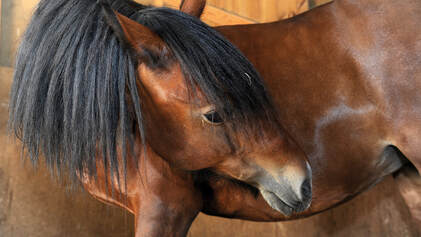 WHAT IS COLIC? This term is used to describe any abdominal pain your horse may be experiencing. It can be mild or severe. The cause? A variety of scenarios that result most commonly in excessive intestinal GAS or..... an IMPACTION. In human terms CONSTIPATION! One early evening a few years ago while hanging around "The Barn" on Canal Road, Pembroke with my dad, I watched him put a large pot on an old oven shelf on top of cinder blocks outside. Lighting the coals or wood underneath, he started cooking a concoction, which included a brownish powdery substance from a bag. The contents of the pot? Old fashioned bran, linseed oil (flaxseed), water and probably some salt. Curious me asked questions and was rewarded with an answer I remember to this day....... this would help his horse to poop! You see, this time of year when temperatures dip to the low to mid 50's at night (with the wind chill factor making it seem lower) IT'S COLD weather for us here in Bermuda. Imagine what horses here are feeling? Yes they grow a thicker winter coat, but break out the horse blankets especially if they are clipped!! Whenever my dad brought in his Standardbred horse from training for harness racing back in the day, he would sponge off sweat with water, use a sweat scraper, rub him down with dry burlap sac bags or a towel, then out came the horse blanket and into the stall (with minimal drafts) "Mighty Barns" went. Periodically he was fed a warm bran mash along with plenty of hay. Like us, horses don't like drinking cold water in cold weather. Urine appears a bit darker and dehydration may set in if we are not careful. This is a common cause of colic in horses during the cold winter in some countries. With reduced water intake, dry feed backs up in their 50 - 70 foot long GI (gastrointestinal tract), which normally contains 10 - 12 gallons of water at any one time. This can be extremely painful to a horse. Bran mashes have traditionally been used to keep a horse regular, but don't overdo it. One school of thought says it upsets the normal bacteria in the GI, which can become a problem, while other horsemen feed a little bran everyday. Still others simply add warm water and mineral oil to their daily ration. WHAT ARE THE COLIC CLINICAL SIGNS/SYMPTOMS TO LOOK FOR? Most owners and stable managers know when their horse is acting abnormally, which can include any combination of the following, although #7 by itself is a dead giveaway.... 1. Stops Eating (and Drinking) 2. Reduced (or Dry) Feces 3. Pawing the Ground 4. Stretching or "Parking Out" 5. Sweating 6. Rolling 7. Looking at the Belly Yes, often walking or lunging your horse can help rid it of gas and/or get its bowels moving. However, if you are not sure, have any questions at all or need help, the sooner you call your veterinarian the better. To ensure the best possible outcome, he/she will conduct a physical exam, may perform a rectal exam, pump water into your horse's stomach, administer pain medications, give an IV drip, or the worse case scenario...... perform surgery to correct twisted or prevent intestines from rupturing and death. Although a scary situation, your horse can survive it's number one enemy......COLIC. Further Reading https://aaep.org/horsehealth/cold-weather-colic https://aaep.org/horsehealth/bran-mash#:~:text=Bran%20mashes%20have%20traditionally%20been,cold%20weather%20and%20prevent%20colic 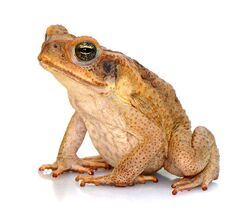 Can frogs (so called in Bermuda, but actually a toad) kill my dog (or cat)? YES....THEY CAN! While growing up, we inherited an all white female terrier cross dog named Tiny. She was trained to come when called, "sit" and maybe "lie down". She had a litter of pups and we kept one named Viera (another story for another day), who became Tiny's companion. As outside dogs they shared a dog box in a sheltered kennel. Tiny was a sweet and friendly much loved family pet, who was not aggressive, but would bark on occasion to let you know when someone was in the yard. She would bark at night too, but would settle down once you called her name. Late one night or early morning, I heard her barking, but paid no attention to it. She soon settled down. The next morning I found my dog not moving, stiff......dead. Nearby was a frog that had gotten into the kennel (because of the dog water bowl?) with blood around it's head. Tiny obviously defended herself against a hopping intruder into her territory and paid the ultimate price for it. Sadly, that was my first introduction to the hazards of Bermuda's amphibian inhabitant Bufo marinus. Imported from Guyana, South America as a valuable biological control for garden cockroaches and centipedes during the late 1800s by Captain Nathaniel Vesey, the frog soon populated all of Bermuda because it had no natural predator. During the day it revives itself in cool damp/watery areas and hunts at night. Bee hives are subject to attack by this creature and, they even have grown men running in the opposite direction. The natural behaviour in some dogs is to chase and capture anything that moves. The thrill of the hunt is instinctual for survival, ..... eat or die. It is important to train your dog to respond to your commands. Here is the worse case scenario - you may be out walking your dog at night, then lose sight of it. The next time you see it, it is chomping its mouth. WHAT TO DO? If your dog is foaming at the mouth and you suspect it may have mouthed or bitten a frog, do not panic.....there IS something YOU CAN DO IMMEDIATELY! Aggressively, get household vinegar into your dog's mouth, then wipe the foam around the mouth with a vinegar soaked cloth. The vinegar (acid) is an antidote to the alkali toxin found in parotid glands behind a frog's eyes. If you do not have any vinegar, use water to rinse out your pet's mouth, contact your veterinarian and take your dog to them right away for treatment because advanced symptoms like gastrointestinal upset and cardiac issues lead to suffering and death. Do not let the fear of veterinary costs stop you from saving your dog's life. Further Reading
https://environment.bm/toads After several years in the making and obvious divine direction, VetSmith was established on Thursday, 1st June, 2017.
Today we at VetSmith celebrate a third year as a veterinary practice in Bermuda by launching a website designed to contribute to our community. It introduces who we are, shows appreciation for our clients and features patient health advocacy. It provides a platform that provokes relevant discussion in order for you our local public to practice good animal ownership and make informed decisions. We are positioned to lead by example as charged by our creator for all of mankind to "...be responsible for the fish in the sea, the birds in the air, the cattle, ...and every animal that moves on the face of the Earth." Gen. 1:26 We are VetSmith .... Advancing Animal Health. |
be informedIt is said, "An once of prevention is worth a pound of cure" Archives
April 2021
Categories |

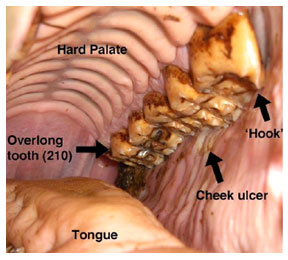
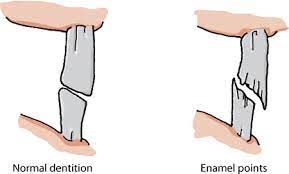
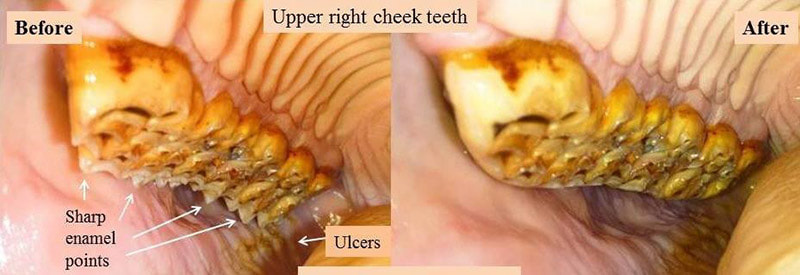
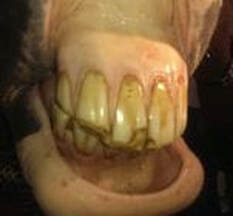
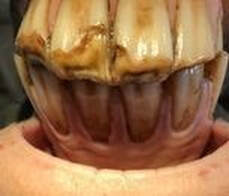
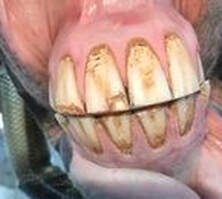
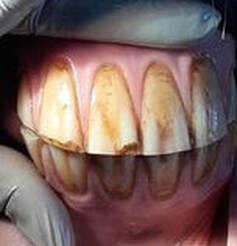
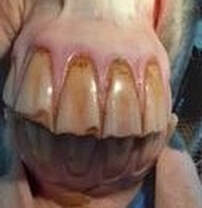
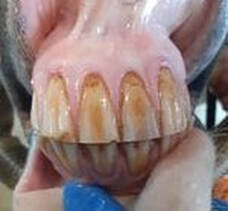
 RSS Feed
RSS Feed